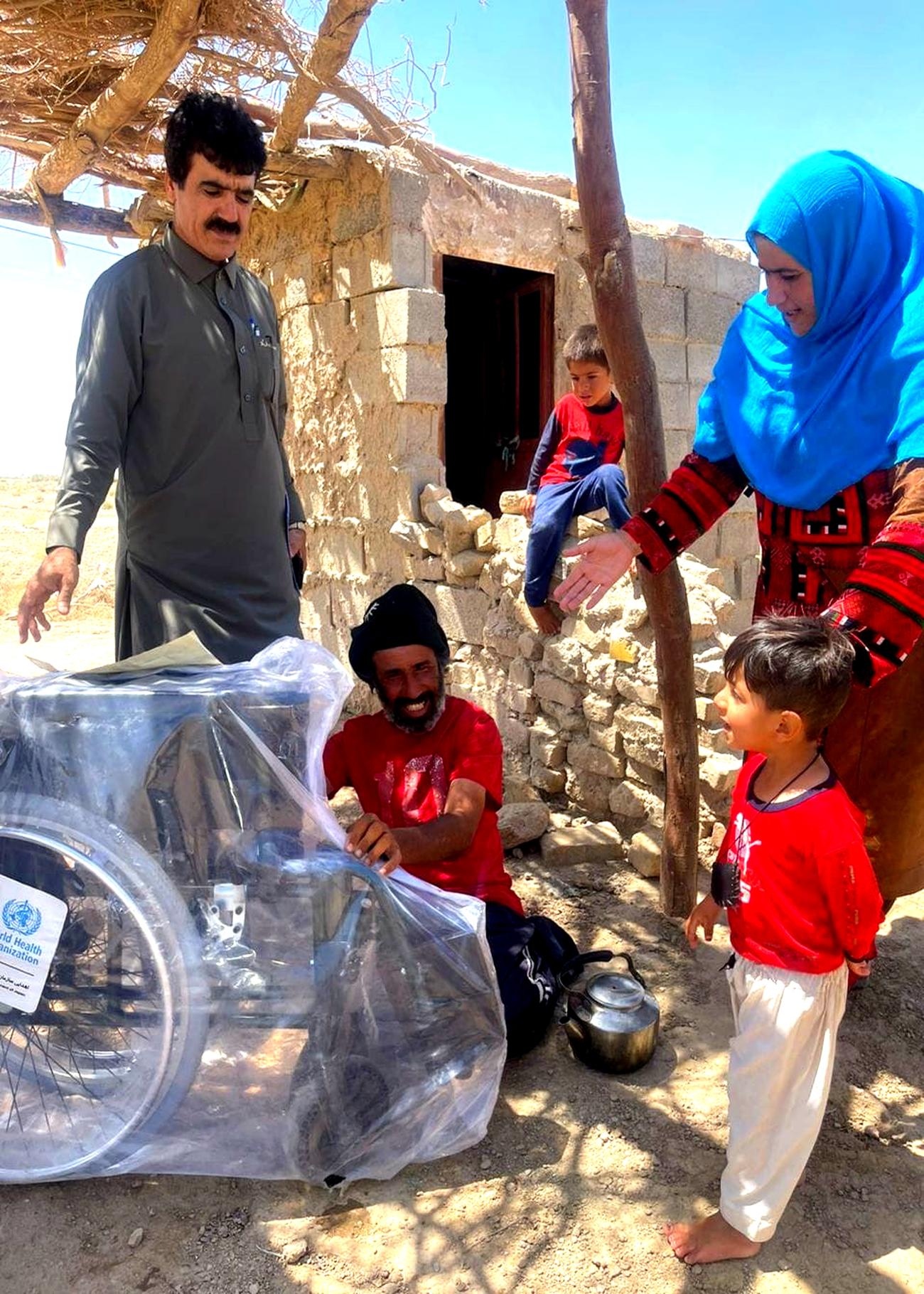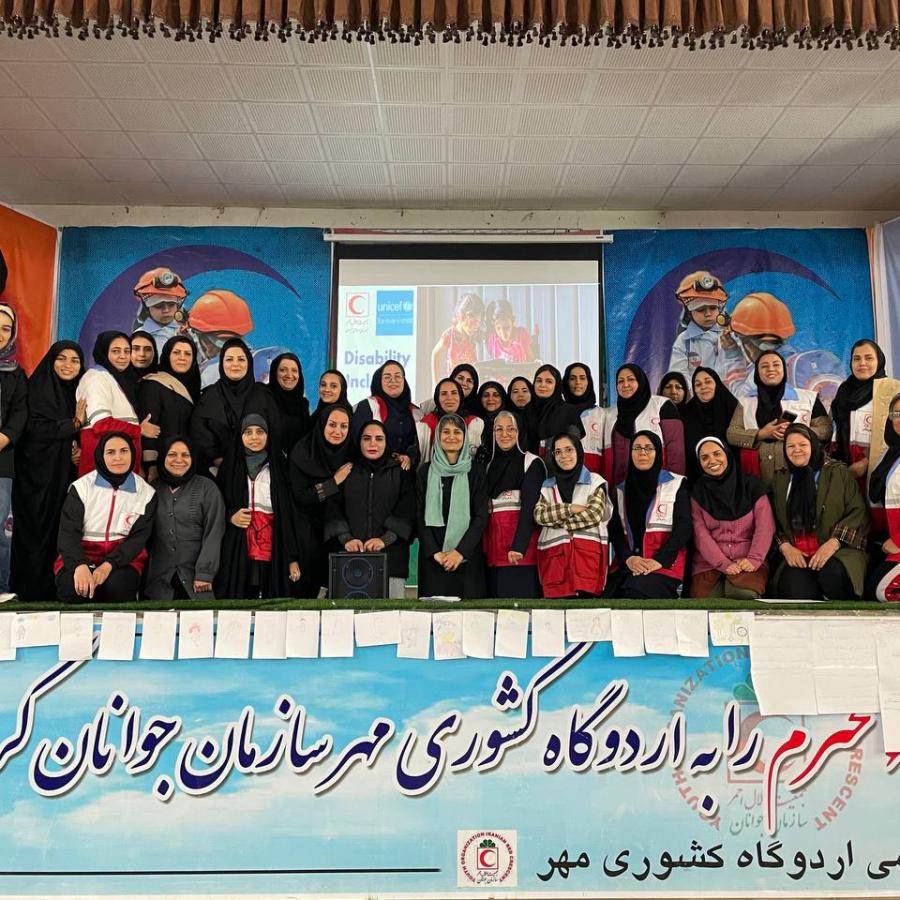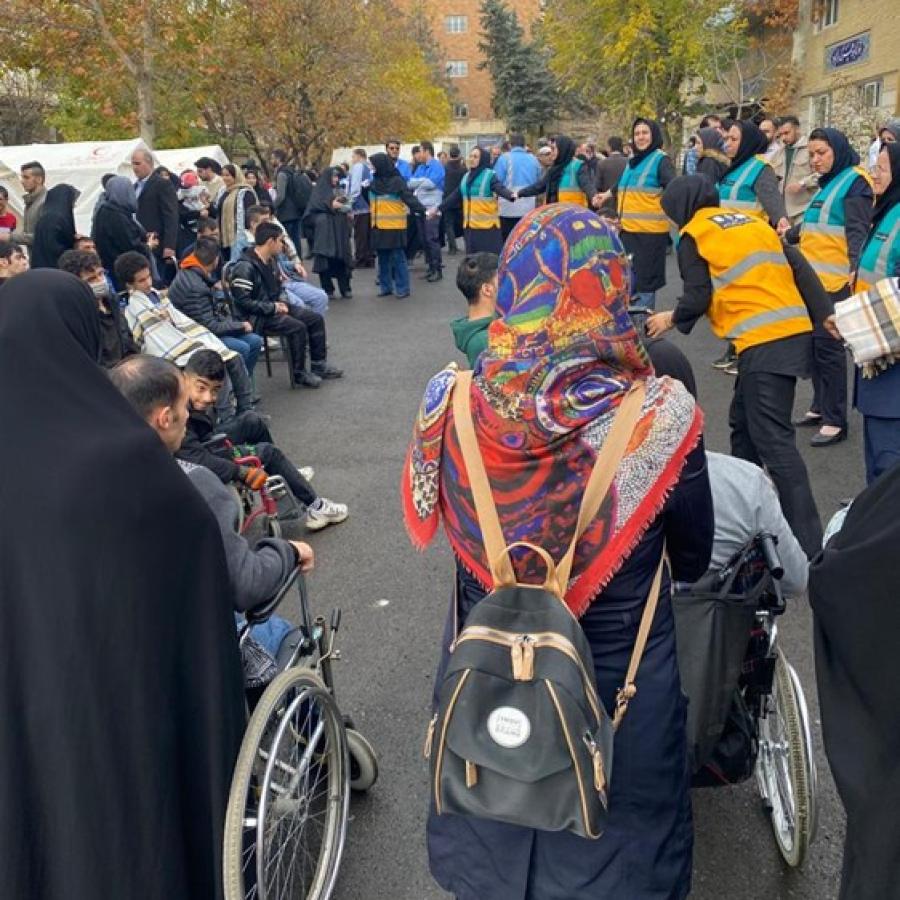Delivering as One UN for People with Disabilities

Improving the quality of life of people with disabilities in Iran
A Flagship Programme for Persons with Disabilities, launched in 2023 by UN Iran in close cooperation with national stakeholders has driven meaningful progress in inclusion, resilience, and accessibility for persons with disabilities in Iran. This flagship programme has materialized through the joint efforts of WHO, UNICEF, and UNFPA.
Building Capacity for Disability Inclusive Services

To improve inclusive service delivery, 410 professionals and frontline workers in Early Childhood Education, mental health, and emergency response and UN agencies were trained using a Disability Inclusion Training Package. This initiative strengthened their ability to provide inclusive and effective support.
“I had never really thought about the needs of people with disabilities and never put my feet in their shoes. Today, during the Power Walk game, I had the role of a refugee girl living with disability and I imagined how it feels for moments. I will never forget this feeling and experience,” said one of the training participants.
Innovating Disaster Preparedness for Children with Disabilities

For the first time in Iran, an earthquake drill was conducted in a special school for children with mobility impairments. Additionally, newly developed guidelines introduced tailored disaster preparedness strategies for children with autism, hearing impairments, and physical disabilities, setting a new standard for inclusive risk reduction.
Strengthening Long-term Care and Outbreak Preparedness
Building on prior efforts and in 2021, the United Nations established isolation rooms in 30 facilities across 13 provinces, developed 13 risk reduction guidelines, and trained 150 caregivers—ultimately benefiting over 7,000 older persons and people with disabilities. In 2024, an study conducted by the United Nations showed that the interventions have had significant positive impacts on outbreak preparedness, reduced infections, improved care, and lowered costs.
To promote independence and mobility, 1,099 persons with severe disabilities from low-income households in Sistan and Baluchistan—including 32% women and 18% refugees—received essential Assistive Technologies such as wheelchairs, walkers, and blind canes. Additionally, they gained access to Aids for Daily Living, including portable toilet seats and transfer boards, improving their daily functionality and quality of life.
Improving Educational Access for Students with Visual Impairments
To enhance learning opportunities, a Braille Embosser was procured for the Ministry of Education and Special Education Organization, ensuring 2,500 students with visual impairments could access inclusive educational materials. This intervention addressed 30% of the total national need.
Empowering Women with Disabilities Through Skills Development
Economic empowerment remained a key focus, with 135 women with disabilities in Kerman and Kohkiluyeh Boyer Ahmad receiving vocational training. Among them, 20 women participated in specialized e-commerce training through an innovative UN-led partnership with the Technical and Vocational Training Organization and the private sector, expanding their employment and entrepreneurship opportunities.



